

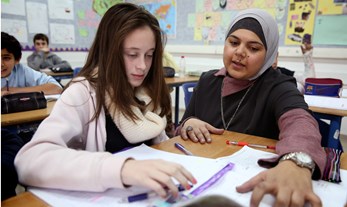
Taking Attendance: Arab Teachers and Students in Israel’s Education System
Written By: Dr. Nasreen Haddad Haj-Yahya
Israel is at a shortage of teachers that is forcing schools to take drastic measures, but the Jewish schools are still not hiring Arab teachers.

What's the Point of an Apology?
Written By: Prof. Daniel Statman
In this season of slichot (penitence) we should ask ourselves - does the essence of apology lie in the sense of regret, or in its expression?

The Return of the International Arena
Written By: Prof. Amichai Cohen
With international institutions once again a cornerstone of US foreign policy, Israel will have to adjust accordingly

Lowering the Age of Exemption will Lead Thousands of Haredim into the Labor Force
Written By: Yohanan Plesner , Dr. Gilad Malach
Congratulations to the Bennett government on approving the outline for lowering the age of the students exempted from service in the IDF to 21. This is a vital and necessary step that the Israel Democracy Institute has recommended in recent years. A kind of necessary evil that will lead in the short term to the entry of about 5,000 ultra-Orthodox into the labor market and thousands more in the coming years.

We Must not Squander the Opportunity for Real Change in Israeli Schools
Written By: Dr. Tammy Hoffman
How many generations of Israelis will be educated without the tools they need to commit to the values of inclusion, respect for the other, and equality?

Lowering the Exemption Age for Military Service
Written By: Dr. Gilad Malach
Survey finds lowering the exemption age is not likely to reduce the number of ultra-Orthodox conscripts to the IDF, however it will encourage thousands of ultra-Orthodox men to enter the workforce.
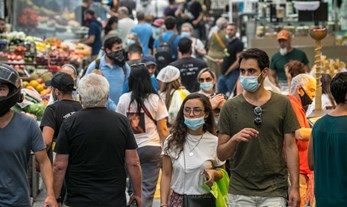
What Solutions to the Conflict with the Palestinians are Acceptable to Israelis?
Written By: Prof. Tamar Hermann, Dr. Or Anabi
41.5% of Jewish Israelis think that the solution to maintain the status-quo with the Palestinians is acceptable– 34% think the same of a two-state solution
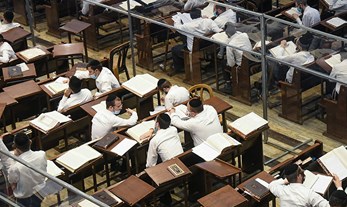
Should Israeli Colleges Insist on Coed Classrooms?
Written By: Dr. Gilad Malach
Dr. Gilad Malach is interviewed on Kan Radion on a recent Supreme Court ruling allowing institutions of higher learning to have separate classrooms for men and women and what the implications will be for the integration of the ultra-Orthodox into Israeli society.

NSO Spyware Scandal May Threaten Israel’s Love Affair With Amazon and Google
Written By: Dr. Tehilla Shwartz Altshuler
Amazon reportedly cut NSO off from its AWS service - the same one that is supposed to support Israel’s new official state cloud. Could Jerusalem be cut off, too?

The NSO Affair: An Explainer
Written By: Dr. Tehilla Shwartz Altshuler
The allegations against Israeli cyber-security company NSO have made international headlines. How could this affect the ‘Startup Nation?’
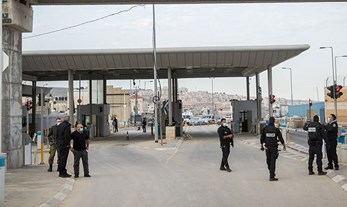
Q&A: The Failure to Extend the Citizenship Law
Written By: Adv. Lila Margalit
The Knesset recently failed to pass an extension of the Citizenship and Entry into Israel Law was adopted in 2003 as a temporary order. Israel's government must now reconsider whether there is indeed a security justification for the sweeping provisions that have been in place until now, and whether there are alternatives that can minimize the potential violation of human rights resulting from the original law.
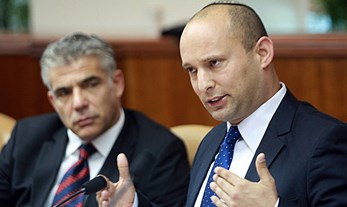
Can Israel’s New Center Hold?
Written By: Yohanan Plesner
Writing in Foreign Affairs, IDI President Yohanan Plesner notes that Netanyahu is out, but the crisis he thrived on remains.

The President—A Rubber Stamp or a Shield of Democracy?
Written By: Dr. Dana Blander
To ensure that the President is able to perform his or her symbolic role in the best possible way, it is important to distance the office as much as possible from political and social disagreements and debates.

Yair Lapid is Perceived as the “Most Influential” Figure in the New Government
Written By: Prof. Tamar Hermann, Dr. Or Anabi
26% of Israelis think that Foreign Minister and Alternate Prime Minister Yair Lapid is the “most influential” figure in the government; in second place with 19% was Prime Minister Naftali Bennett and in third with 11% was Mansour Abbas.
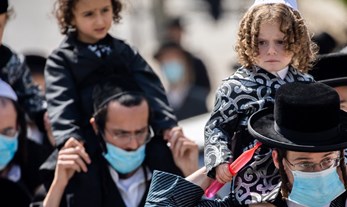
Decision on Daycare Subsidies = Increased Motivation to Work
Written By: Dr. Gilad Malach
Dr. Gilad Malach on the Finance Minister's Decision Regarding Daycare Subsidies: "This is a welcome decision that will end the preferential treatment that ultra-Orthodox households have enjoyed"

How Revolutionary Was Israel’s ‘Constitutional Revolution’?
Written By: Prof. Amichai Cohen
Prof. Amichai Cohen discusses his new book The Constitutional Revolution and Counter-Revolution, and explains the changing role of the High Court of Justice in maintaining the checks and balances of Israeli democracy.

A Decade Since the Social Protests, Summer 2011 – Highlights
Written By: Prof. Tamar Hermann, Dr. Or Anabi
A decade since the 2011 social protest, most Israelis think the social protest has failed to achieve its goals, with rising housing prices and growing gaps between rich and poor. On the other hand, most of them believe that the Balfour protest from the past year has actually succeeded. And despite everything, a large majority of the Israeli public still believes that public protests are an effective tool for influencing government policy

Governance vs. Governability: More Than Just Semantics
Written By: Adv. Edna Harel Fisher
Edna Harel-Fischer sits down with the Tel Aviv Review and unpacks the recent controversy around governance/governability in Israel: How did it become a partisan issue? And what is the role of the public service in safeguarding the will of the people?
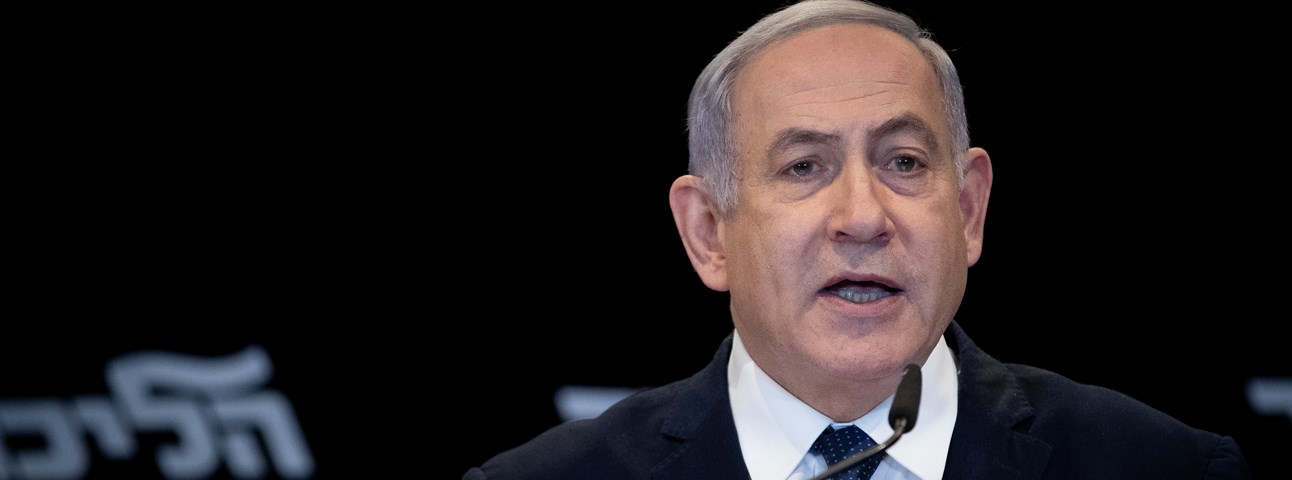
An International Look at Israeli Democracy Under Benjamin Netanyahu
Written By: Dr. Or Anabi, Prof. Tamar Hermann
The new government offers a timely opportunity to review and assess Benjamin Netanyahu’s premiership in terms of its impact on Israeli democracy.
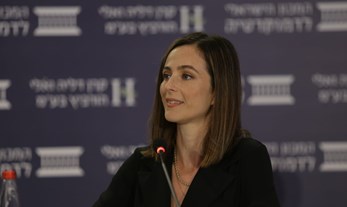
The Labor Market in the Post-COVID Era
Meirav Cohen, Minister of Social Equality: “Employers should be given incentives to choose older workers”

Israel's Macroeconomic Challenges in the Post-COVID World
“Two challenges hover above the rest – a stock market bubble and inflation”

The Macroeconomic Priorities of the New Government
Avigdor Liberman, Minister of Finance, opened the first day of the 2021 Eli Hurvitz Conference on Economy and Society, saying: “We are after more than three years of political crisis without a budget, reforms or legislation. The economy ran on a kind of autopilot. We will now pursue a responsible policy, without deep cuts.

Formulating Climate Policy: The Private and Public Sectors Join Forces
Minister of Environmental Protection Tamar Zandberg, Minister of Energy Karin Elharar, Minister of Transportation Merav Michaeli and Minister of Economy Orna Barbibai in a joint declaration at IDI's Conference: "We will cooperate on Israel's climate policy, to lead to an 85% reduction in Israel's greenhouse gas emissions by 2050."

A ‘Change Government?’ Not for Religion and State
Written By: Dr. Ariel Finkelstein
There are many urgent things on the new government's desk - will they have the ability to tackle questions on religion and state?

Enough Talk about Decentralization – It’s Time for Action
Written By: Dr. Ariel Finkelstein
There has been much talk and little action about the need to delegate powers to the local authorities. Now is the time for actual be movement on the ground.

So Long Ángel, and Thanks for All the Reforms
Written By: Adv. Rita Golstein-Galperin
Outgoing OECD Secretary General Ángel Gurría is a close friend of Israel whose name has become synonymous with the organization itself. Gurría's long tenure saw Israel implement a number of important OECD reforms, will this continue after his departure?

The 36th Government of Israel
Written By: Yohanan Plesner
The new government has potential for the return of normalcy, and even for historic changes

What's in the Coalition Agreements?
Written By: Dr. Amir Fuchs, Dr. Assaf Shapira
Should there be term limits for prime ministers? A mandated cooling-off period between their terms? How easy should it be for Knesset factions to split once elected? IDI experts examine some of the more contentious proposed new laws in the coalition agreements and assess their possible implications.

Employment of Ultra-Orthodox Women—the Next Revolution?
Written By: Dr. Gilad Malach
An increasing number of young Ultra-Orthodox women are choosing not to go down the traditional path of studies preparing them for a teaching career. Instead, they are enrolling in academic institutions to study subjects that will help them embark on a professional career and hopefully be reflected in their income.

Israel's 36th Government – By the Numbers
Written By: Prof. Ofer Kenig
With the Knesset set to vote on a new government on Sunday, Prof. Ofer Kenig, a research fellow at the Israel Democracy Institute, presents an following analysis of the proposed government.

